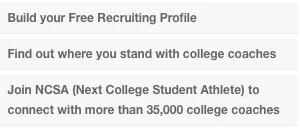Alabama Case Reveals Impossibility of Avoiding Conflicts
Brent Schrotenboer of USA Today details the connections between NCAA President Mark Emmert and Alabama head coach Nick Saban. Those connections put the NCAA in a tough position given the investigations into two cases of Alabama football players allegedly receiving extra benefits from agents or individuals connected to agents:
[Stephen] Miller, the attorney, said the system has “built-in, inherent conflicts of interest” and has called for the NCAA to outsource its investigations to independent agencies or law firms. He predicts major schools will want to break away from the NCAA because “it’s no longer worth it to be subject to that kind of arbitrary enforcement.”
Whether Miller intended to or not, calling for a change then predicting it will not be enough reveals something about the calls for “independent” investigations. Namely, that there is no such thing as an independent investigation anymore.
Someone has to pay these third parties to investigate. It will likely be the NCAA. Control of the purse strings creates the possibility of control of the investigations. If the belief is that the NCAA already engages in ex parte communication with the parties involved in an infractions case, why would they not engage in similar conversations with the investigators? If there is a belief that investigations are arbitrary now, what stops that belief from morphing into “the NCAA paid the law firm to prove what it wanted proven”?
Even if NCAA investigations were done [by the government][bb gov], that does not remove the appearance of impropriety if you account for future relationships between investigators and the organizations they are investigating. Cozy relationships between regulatory agencies and Wall Street or Congressional staffers and lobbying firms along with cushy jobs waiting after leaving the public sector are an example. Where an investigator works after a case is just as valid a target for legitimate accusations of impropriety or conspiracy theories as who they hired in the past or where they went to school.
It was likely not Miller’s point, but the idea that the NCAA just has to outsource investigations to make them beyond question is not true. Third party investigations may be helpful, but they need to be matched with controls on those investigations, higher evidentiary standards, stronger due process protections for the accused and independent (or at least more independent) review of investigations and evidence to fend off these types of accusations.


